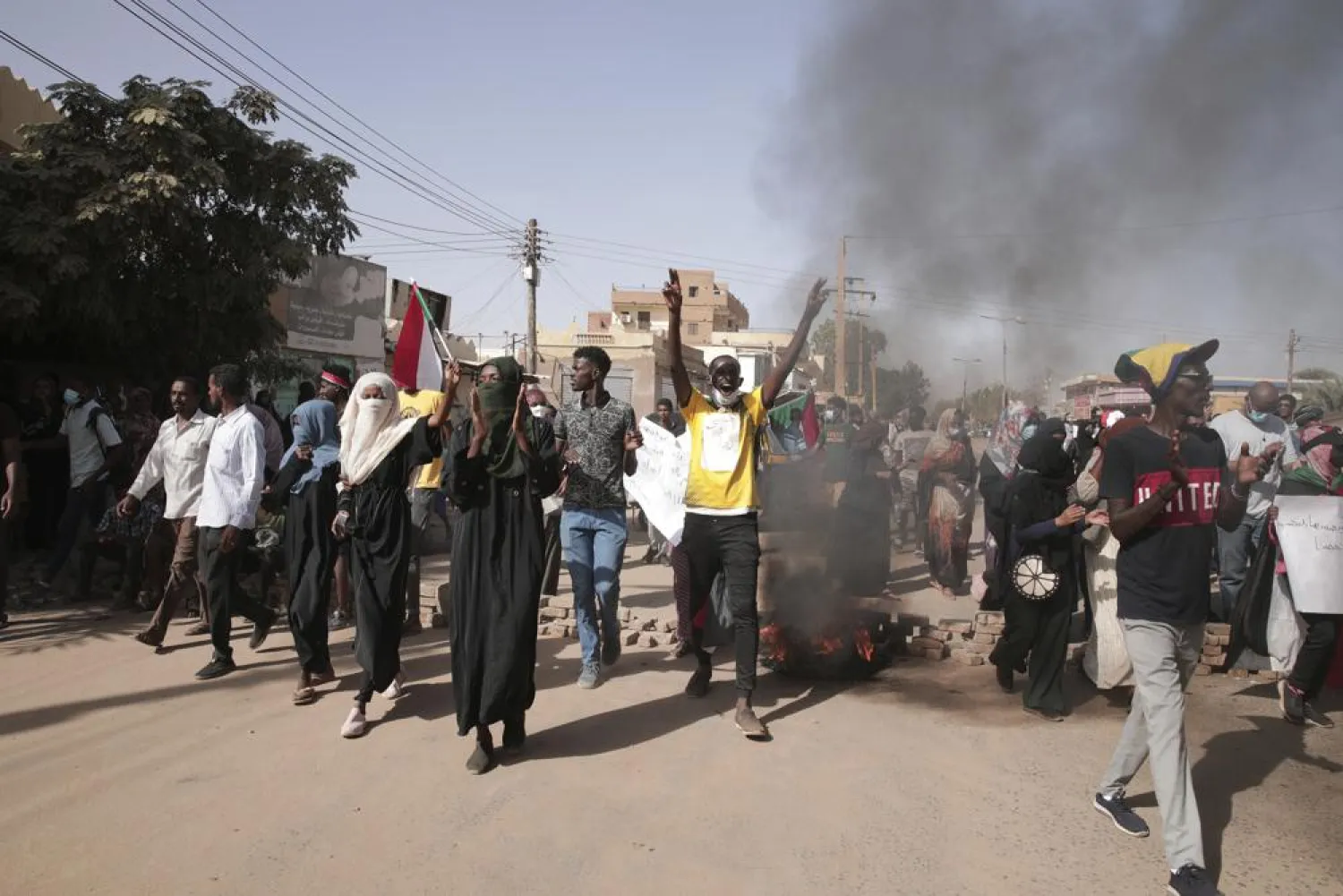Tens of thousands of people rallied in towns across Sudan on Monday, seeking to sustain pressure on military leaders who staged a coup in October but later reinstated Prime Minister Abdalla Hamdok following mass protests.
The rallies come three years after the first stirrings of the uprising that toppled long-ruling president Omar al-Bashir in 2019. His removal led to a political transition with the military and civilians sharing power, but the coup cut it short.
Thousands marched from the capital Khartoum's twin city of Bahri over the Nile towards Omdurman, waving national flags and chanting slogans against the military. Security forces had previously kept the bridge between Bahri and Omdurman closed during protests.
"This battle is the second battle in bringing down the (Bashir) regime," said Siddig Tawer, a former member of the transitional ruling council dissolved by the coup, who was protesting in Omdurman. "Bashir's fall was one stop, but after that it is about instituting a democratic system."
Late in the afternoon, security forces used tear gas to disperse protesters in Omdurman and Khartoum, witnesses said.
Crackdowns on protests in the weeks following the coup left at least 44 people dead, many from gunshots fired by security forces, according to medics aligned with the protest movement. On Monday the public prosecutor announced the formation of a committee to investigate violations during the protests.
One banner carried by protesters in Bahri on Monday read: "You can cut down all the flowers but you can't end the spring."
Authorities say they allow peaceful protests.
"We are patient, the person who gets tired first loses," said Fatma, a 22-year-old college student in Omdurman, adding that she was alarmed by a recent surge in violence and displacement in the western region of Darfur.
The protests were the latest in a series planned by neighborhood resistance committees against the military.
Footage of demonstrations in towns and cities including Port Sudan, Atbara, Wad Madani, Al Gadarif, and the Darfur state capitals of El Fasher and Niyala, was posted on social media.
Hamdok is due to appoint a cabinet of technocrats under his deal with the military, a task that is complicated by opposition to the agreement from political parties and protesters.









